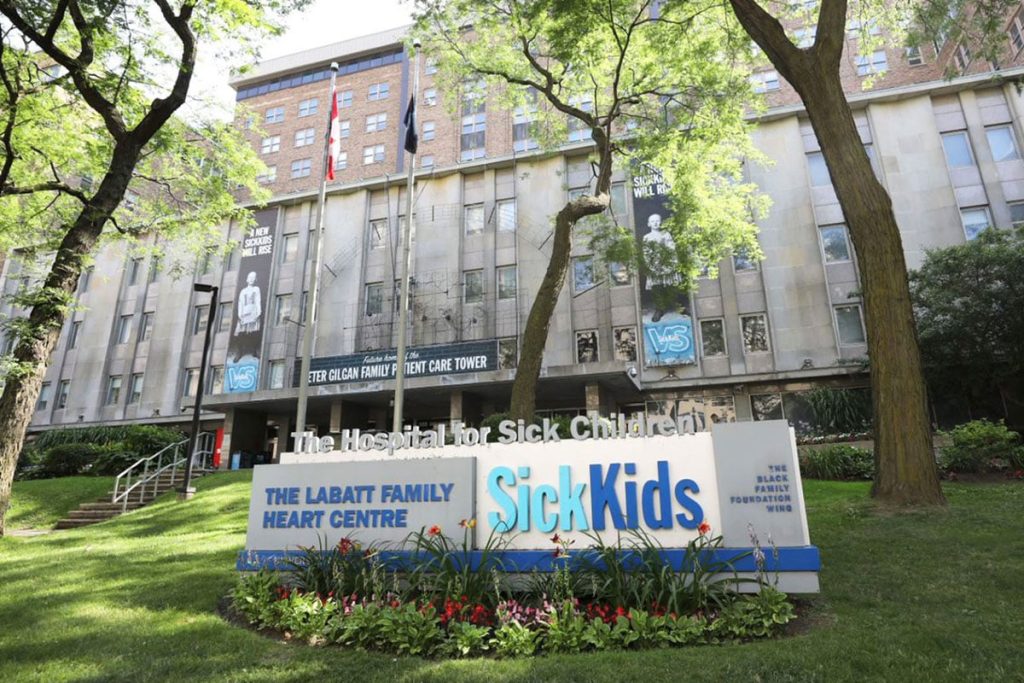New trial at SickKids explores how diabetes drug may help multiple sclerosis patients

Posted May 14, 2024 1:34 pm.
Last Updated May 14, 2024 3:22 pm.
More than 97,000 Canadians have multiple sclerosis (MS) and the country is among those with the highest number of cases in the world.
Unlike other neurological conditions, MS tends to develop in younger adults and is commonly diagnosed between the ages of 20 and 49 and can be seen in children as young as 10 years old. It also tends to affect women more than men.
“An inflammatory process, which is caused by a number of different factors, attacks the brain and it is thought to be, in some ways, the body attacking itself, one’s own immune system attacking oneself and creating discrete areas of inflammation in the brain, in the optic nerve and in the spinal cord,” explains Dr. Ann Yeh, clinician-scientist with SickKids Hospital.
“One of the key things that happens in MS is that the myelin or white matter, which is that protective area that provides insulation for the nerve and helps [quick] transmission of impulses, becomes injured, and … that transmission of impulses is decreased.”
While there are a number of therapeutics that manage the inflammation caused by MS, there is no cure.
However, groundbreaking research being conducted in Toronto is currently exploring the possibility that the common diabetes drug Metformin could have both preventative and regenerative properties for those with MS.
More than a decade ago, Canadian researchers found that Metformin helped to improve the ability of specialized stem cells – called oligodendrocyte precursor cells – to turn into myelin.
Pre-clinical research led by professor Cindi Morshead, chair of the Division of Anatomy at the University of Toronto, took that exploration a step further.
“We asked the question, ‘would we be able to repair the injured brain by activating the resident stem cells that are found in the nervous system?'” explains Morshead.
“We started off by doing this in [an animal] model of cerebral palsy … and we were able to demonstrate in that model that Metformin administration had a number of different effects. It was able to reduce inflammation. It was able to make new neurons and also make new oligodendrocytes in the brain and improve functional outcomes. So it had this effect on the brain that was remarkable. And one week of Metformin administration was able to improve the function and the generation of new cells.”
Since the experiments showed that new oligodendrocytes were being generated, Morshead went on to research whether the drug could be used in demyelinating diseases such as MS.
“We administered the antibodies [to animal models] to induce the demyelination. And at that same time, we gave Metformin. 40 per cent of the animals that we had injected with Metformin didn’t show any signs [of demyelination]. And even the animals that had some clinical signs never got as bad as the ones that did not receive Metformin. So this was remarkable in the sense that it looked like it was decreasing the severity of the injury … so when you gave Metformin, you could spare the myelin … it was a protective effect,” she explains.
“In that same study … we said, ‘what happens if we delay treatment?’ And that did not have any benefit. So this said that if patients are presenting at an early age with MS then giving this safe drug may be able to stave off some of the detrimental effects that the disease would have. So that’s the importance of the early administration.”
The positive results of this research, in part, have led to the first clinical trial of Metformin’s impact on younger patients in the early stages of MS, led by Dr. Yeh.
“If you’ve got injury to myelin and you have something that helps to protect, repair or increase myelin, then the ability of those nerve cells to transmit impulses could potentially go back to where it was before, so it could lead to recovery of function,” she says.
“So because of this exciting research [by Morshead] and other research that’s been done around the world, we wanted to ask the question ‘could we look at a commonly affected area in MS — and that is the visual pathway — to understand whether giving the drug could help to improve or increase the function of that pathway that is reliant on myelin?’ Meaning would it show an increase or an improvement in the myelin that existed there?”
She says since it is very common for MS to affect eye function, using the eye as a model is a good way of understanding “whether or not we could get some regeneration going in people with MS.”
The pilot feasibility study led by Dr. Yeh is currently recruiting participants.
“Our big goal right now is to recruit young people because we’re starting with teenagers and young adults in the study. One of the things that is important about clinical trials everywhere in the world and in Canada as well, is that it’s very challenging to participate in a clinical trial. It’s a lot of work, there are a lot of visits. It’s a big commitment and there’s a lot of uncertainty related to participating in a clinical trial. You don’t know what drug you’re going to be getting, right?” says Yeh.
The study requires 30 participants between 10 and 26 years old and so far, 15 have signed on.
“[This trial] is really focused on whether or not the outcome metrics we’re looking at are appropriate for this group and as well whether we can get people to enroll. This is such an important first step in understanding whether or not this drug can actually be an add-on to have a dual purpose for people with MS.”
If the study recruits enough participants and shows positive results, the next step is to conduct a definitive randomized control trial to further study whether Metformin leads to myelin regeneration compared to other treatments or a placebo.
“Let’s say a definitive randomized control trial is performed and it’s positive — there’s such great things that could come out of that,” says Yeh.
“Therapies for MS have come a long way … in the last two decades such that there are extremely effective drugs that are available to dampen down inflammation. But we still see what we call progression … or worsening of the disease despite controlling inflammation. So this could be a great add-on that could potentially improve the trajectory of people [with MS]. So that’s where the huge benefit could be.”
She adds that since the drug has already been proven safe, does not have many side effects and is inexpensive, it would be easy to incorporate into standard therapies for MS.
“But it’s down the line. We need people to participate, we need the definitive trial and we need to have very good outcome metrics to understand that,” says Yeh.
“As a clinician caring for young people with multiple sclerosis, I’ve seen a revolution in the way that we treat MS, but I think that we still need to do more. This is where the future lies, in really understanding whether we can figure out things that have regenerative potential.”
Click here to find out more about the pilot feasibility study and how to participate.








